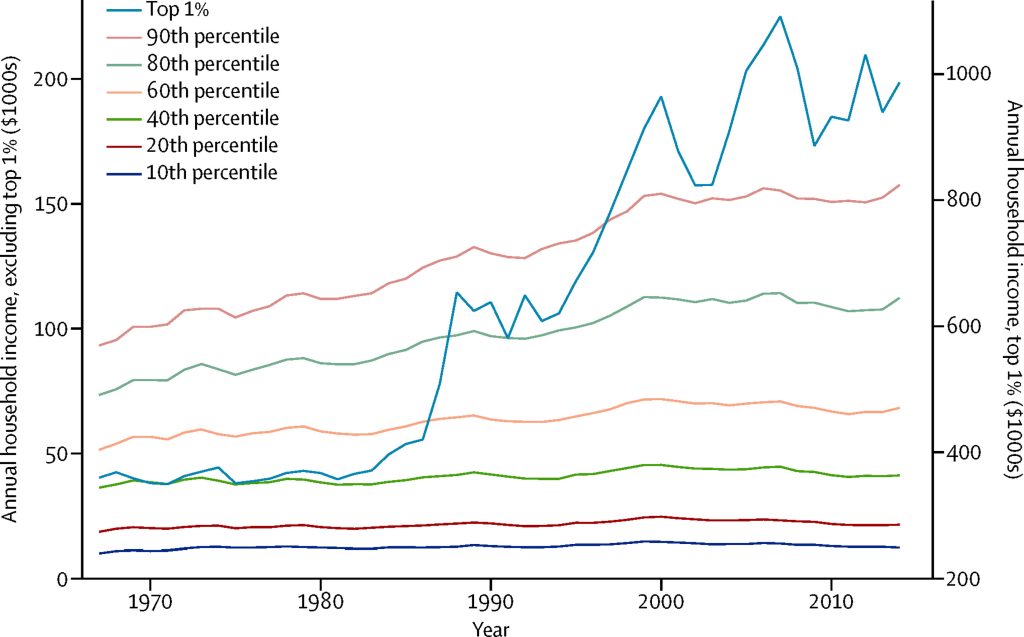12.4 The Social Dilemma
“What is the social dilemma,” you may be asking. By definition, a social dilemma is a conflict between immediate self-interest and longer-term collective interests. According to everything we have learned about human evolution, we originated in small, egalitarian social groups. Rarely were our foraging camps larger than 35-50 people, which meant the group could self-regulate for cheaters and scroungers.
Even the United States constitution includes egalitarian language:
“We hold these truths to be self-evident, that all men are created equal, that they are endowed by their Creator with certain unalienable Rights, that among those are Life, Liberty, and the pursuit of Happiness.”
Despite this, a report in The Lancet by Bor, Cohen, and Galea (2017) demonstrated the growing income and wealth inequalities in the United States since 1970. As you can see in the chart below, the top 80th, 90th, and 1 percentile (in other words, the wealthiest 20%) have steadily increased wealth over the past 40 years, with the top 1% showing the most significant increase. At the same time, the remaining 80% of the population have seen little to no increase in income, with the last decade even showing a loss for many groups.

If our evolved state is to share, reciprocate, and keep everything fair, how did we get here?
relating to or believing in the principle that all people are equal and deserve equal rights and opportunities.

